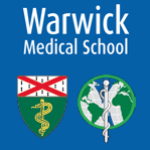


Theme
International Medical Education
Category
General
INSTITUTION
University of Warwick, Ben Gurion University, Yale University

The elective is a component of many undergraduate medical curricula. Whether students choose to spend their elective period overseas, or closer to home, they are often exposed to different cultures and communities. There exists little widespread consensus about the educational objectives, teaching methods, and means of evaluation for international clinical experiences (1). One area of interest however is the use of narratives that encourage reflective practice and the development of empathy and cultural understanding.
In our schools we require students returning from elective to write a reflective account of their experience. These accounts are usually between 1,000-3,000 words and are based broadly on the knowledge, skills and attitudes gained while on elective, although specific instructions are not given to students about what to write, to allow each student to focus on the experiences meaningful to them.
The aims of our work were to develop a method to categorise the themes addressed by students in their reflective papers, and to determine if another institution from a different cultural setting can use the same analysis method.
The development of culturally aware medical students will potentially lead to the effective practice of cultural medicine. Although still a work in progress, our analysis method has helped us to better appreciate the transcultural understanding that our students gain from electives. In addition it has also given us a potentially powerful evaluation tool allowing us to better evaluate the effectiveness of our electives programmes and a measure of how students achieve the basic goals of their elective.
We would strongly recommend a follow up international inter-institutional study to further validate the analysis method, to determine its generalizability and to determine its feasibility for use not only with students from northern countries, but also with students from southern countries who participate in electives.
We believe that transcultural understanding should be a primary aim for medical electives that involve global health experiences either at the home institution or abroad. Such understanding can come from national or international experiences, but must involve cultural immersion.
As a pilot study we have analysed the text of reflection papers written by students as a report of their experiential learning on elective in an attempt to discover what transcultural understanding has been gained, both personally and professionally.
During the first phase of the project at Yale University in the USA the text of reflection papers was analysed to develop a hierarchy of themes. The occurrence or absence of themes or sub-themes was used to generate a score for any given reflection paper, +1 for the occurrence of a theme, 0 for no occurrence. Thus an individual student’s reflection paper will have a numerical score based upon the number of themes mentioned. The specific themes mentioned gives an idea of the issues important to the student.
Our idea is that a profile could be drawn up giving a broad impression of what each student gained from his or her elective experience by looking at the range of themes present in their reflection paper. How similar or different these profiles are from one another could help us to understand how students are achieving the learning outcomes for their elective, particularly in relation to how students perceive different health cultures.
The Yale coding scheme was then trialled at the University of Warwick in the UK to test for validity. For instance, how do the experiences of students from Warwick differ from those of students at Yale? Are differences a product of the different cultures of British and American students, or differences in the learning objectives of electives programmes, or other factors?
We identified a broad range of themes addressed by students (table 1). Reflection papers were scored according to the occurrence of themes and sub-themes. The full Yale coding scheme including sub-themes is given in the ‘more detail’ section.
|
Student preparation and
anticipation |
Student’s emotional responses |
|
Death and dying |
Hope for change or
improvement |
|
Student's physical
environment |
Observation of general culture |
|
Adjustment process |
Aids to adjustment process |
|
Student coping strategies |
Student's description of medical culture |
|
System of care/range of
care |
Student's perception of patient's
view of care |
|
Effect of environment on
illness |
Use of resources in problem
solving |
|
Ethical issues |
Quality of inter-institutional
collaboration |
|
Research |
Admiration, appreciation and
respect |
|
Looking back after return
home |
Poverty and Health |
|
Teaching environment and student's educational
experience |
|
Table 1. Themes headings addressed by students in reflection papers at Yale University. Sub-themes not shown but can be found in the ‘more detail’ section.
Subsequent use of the model to analyse reflection papers at the University of Warwick during the second phase of the project showed good applicability of the coding scheme, however a number of new codes were identified from the analysis of Warwick reflective papers that were not recorded in Yale reflective papers (shown in the ‘more detail’ section).
Although there was broad similarity in the range of themes mentioned by students at Yale and Warwick, there were also some differences. For example, Yale students made more observations on general (non-medical) cultural issues and seemed more able to describe their emotional reactions, while Warwick students were more aware of the language barrier between themselves and people they met on elective, and were more likely to comment on their observations of the doctor-patient relationship. However as this is a pilot study many more reflection papers need to be analysed.
Please select 'More detail' for contact details of the authors.
1. Peluso MJ, Encandela J, Hafler JP, Margolis CZ. Guiding principles for the development of global health education curricula in undergraduate medical education. Med Teach. 2012;34(8):653–8.
 Send Email
Send Email